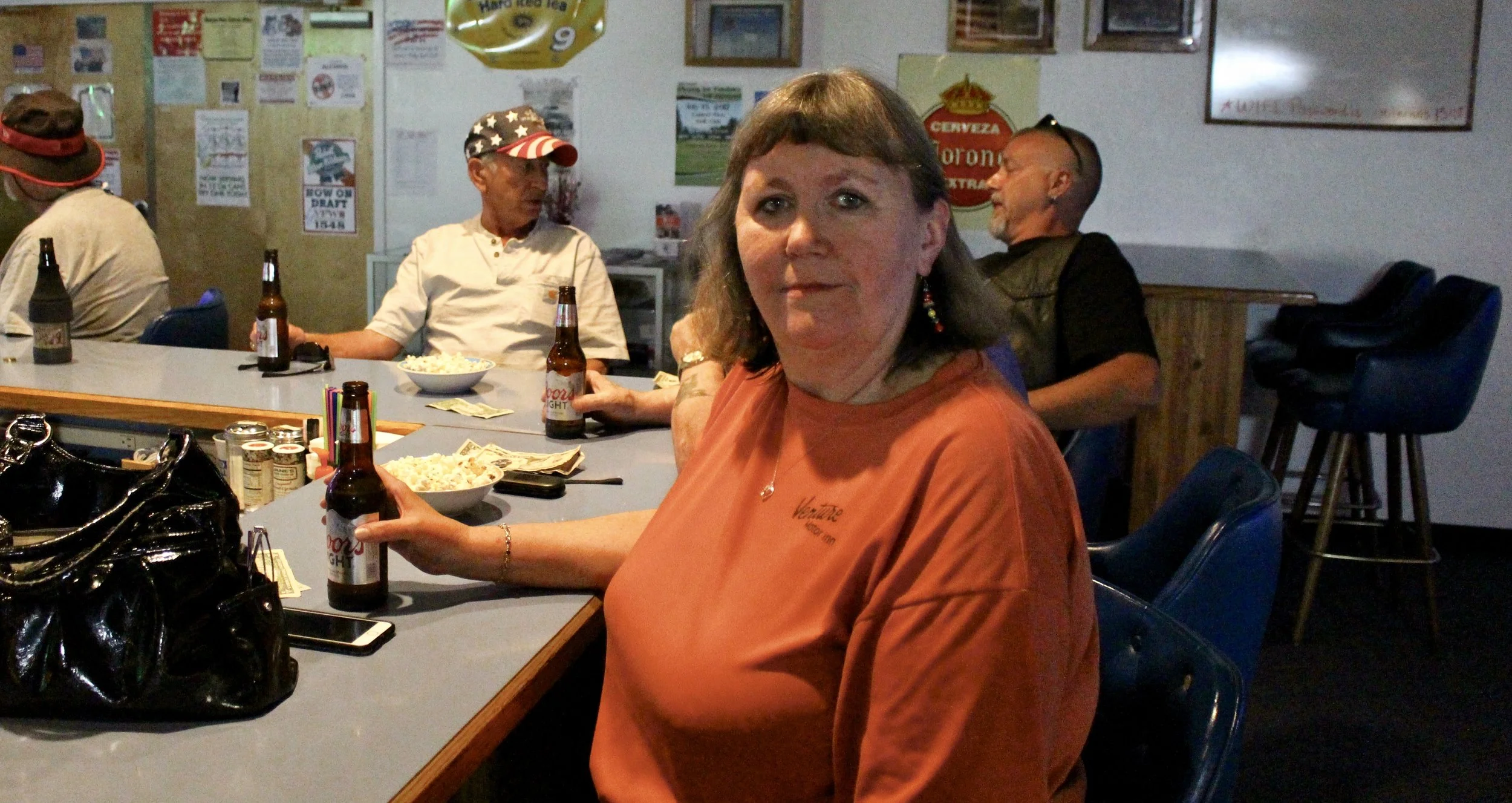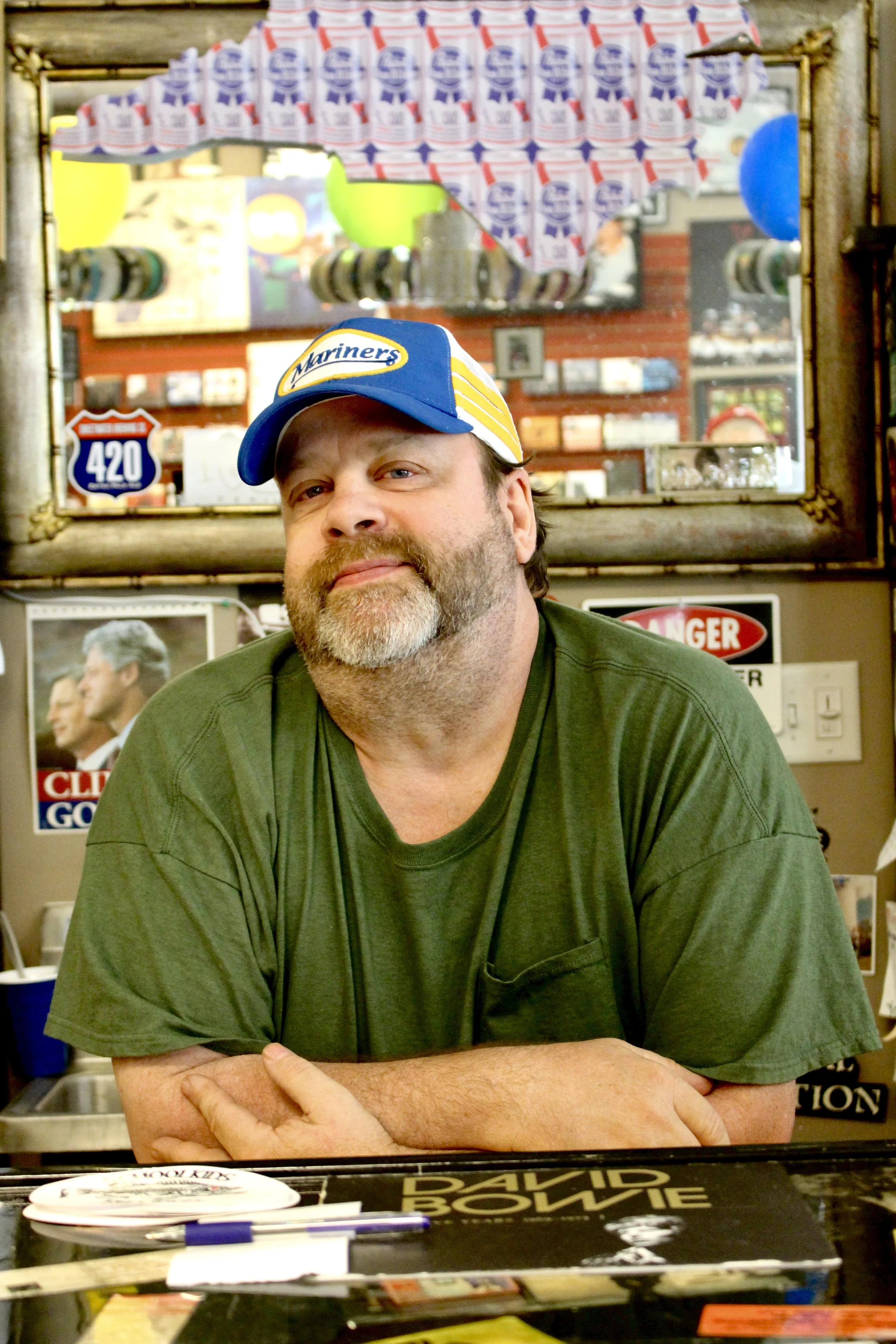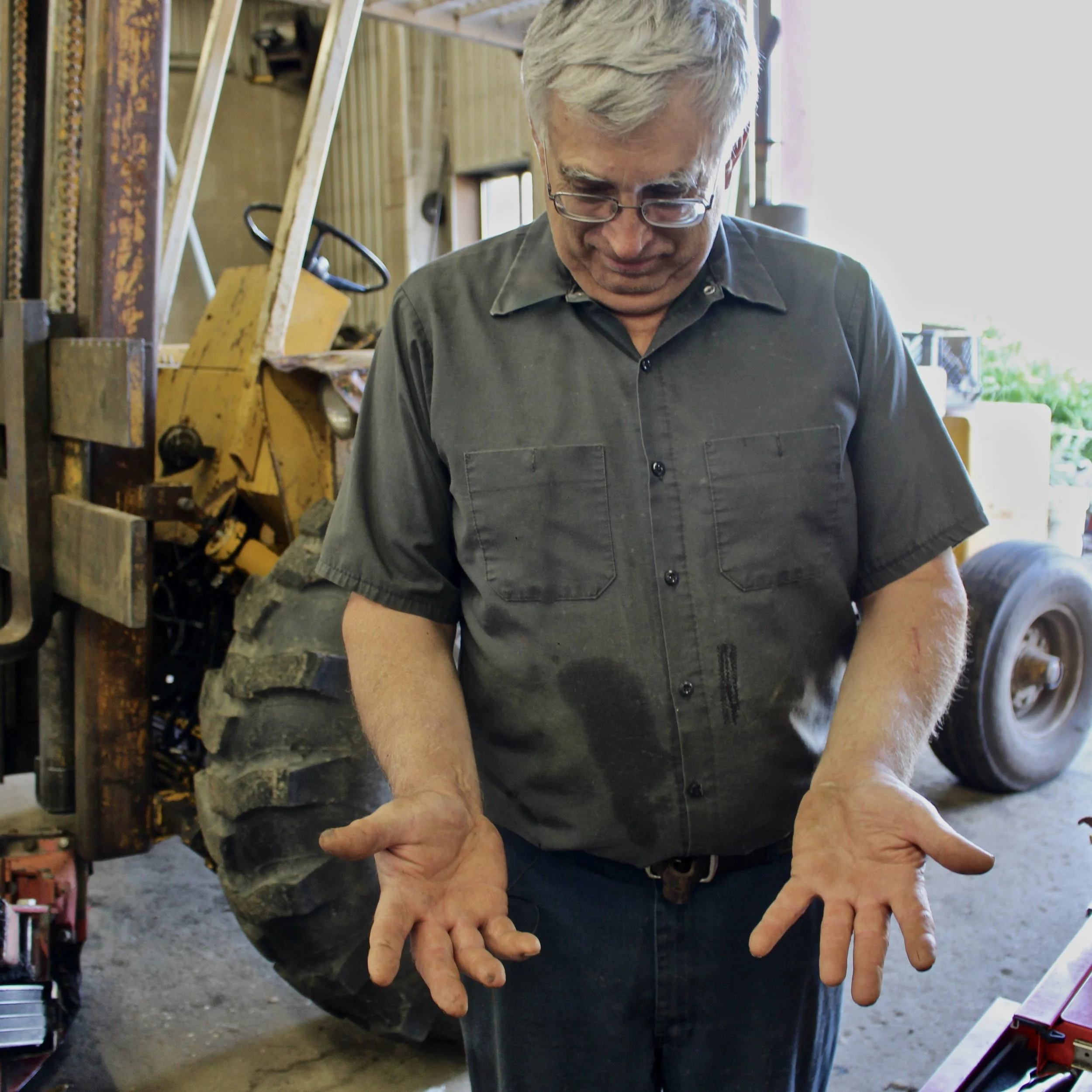Living in Libby
The VFW bar is dimly lit but heartily attended
The oversized door to the Libby VFW lounge swings open on a dimly lit bar, loosing a stampede of sunlight on unadjusted eyes. As the light is choked off, the sitters have already teased and welcomed an old friend or tossed a friendly ribbing at a stranger. Libby has that familiar small town atmosphere: the path between stranger and friend is short, and one way. Friends take up less space, there isn’t enough room for enemies. The VFW This is where Lynn spends her afternoons between two jobs
“My parent’s worked at the mills here in Libby. My father drove logging truck and worked on a wagoner operator. My mom was a foreman in the plywood plant. While my parents worked we’d go to school or play in the creek. Where I grew up, we had a lot of kids. So we would play, ride bikes. We camped a lot, at the Thompson Lakes, up at the reservoir, up at Bull Lake. That was most of it. But there were a bunch of kids playing outside, it wasn’t like today.”
On its surface the town seems typical of Western Montana. Hardy people, local bars, a main street that feels just 5 years past its prime. But the town is known in the area as a tragedy. About 100 years ago, Libby staked its fortune on a vermiculite mine just outside of town. The obscure mineral was used extensively for fireproofing and heat resistance around the country and world. The town of 2,000 people were producing 80% of the vermiculite used worldwide. The vermiculite mined here though was deeply contaminated with asbestos.
“My grandparents worked in the vermiculite mines. I don’t know too much about all that but I know it gets in your lungs, you have it, they detect it and people go on medical for it. Back then no-one knew. They would build with it, they would plant their gardens with it. My grandpa would come home and there would be dust, just the dust. Now we’ve got that… everyone’s got that asbestosis and all that. When that became public everyone thought we were a dying town. But actually we’re not a dying town from that. It’s the economy. When the mine closed we were still okay as a town, we still had jobs. Now it’s hard to find jobs here. Our school system has gone down. A lot of people think it’s the asbestosis, and they can think that. All my grandparents, and my mother has asbestosis, but we’re like, what are you going to do, we’ve still gotta live our lives from day to day. So the asbestosis is there but it’s bigger than that.”
The government made a long overdue step into the town to analyze and begin cleanup in the early 2000s. As of today, the EPA is finishing up their cleanups of public spaces and homes, hopefully minimizing future cases of asbestosis. But Lynn sees the illness of the town has metastasized past any single health disaster. It’s the convergence of little injuries. The town fell gradually, like a giant toppling and stumbling as its body meets the ground, the whole scene appearing slowly just because of the scale of each moment.
The pawn shop, ironically, for sale
“We were booming when I was growing up. We had the dam, the lumber industry, we were booming, we had jobs here in town. All the bars here in town were full. We had about 300 kids in our school. Things were good then.
I was in Libby doing odd jobs here or there in the 80s and I got married young and we both went into the service but we never ended up stationed in the same place and we ended up divorced soon after. I was in the Navy for 4 years. I wish I would’ve stayed in the service, but now I’m too old. It was stable and secure. It had good benefits. My brother stayed in and now he’s retired and teaches first grade. He has a good life. But it’s too late now. So I do regret that. Now I’m here back at home back in Libby. But I like it here.”
I ask why she regrets losing the stable Navy work
“When I left for the service, the mill was still going so the economy was strong here. The mill shut down soon after I got back from service and the economy fell along with it. It closed in ’93 and people lost work and then it was hard to get new work. It took down a bunch of supporting business. My dad died a few years after the mill closed. See, he didn’t have a hobby. That was his life, and he drank a lot, so when it closed, he just fell off. When he was at the mill he got disabled with his back, so he didn’t have much else he could do once the mill closed anyway. My mom went from timber work to quilting and volunteering for a bunch of local organizations. She’s busier now that when she was working. But a lot of people lost work when the mill closed and not everyone handled it well. When I came back this was all happening around me. But I can’t regret living here. I like it here. Libby is a good town. I talk about moving from here but wherever you move it’s going to be more expensive. It is, it’s gonna be more expensive. So I’ll just stay here, right here.”
These days, the focus is on getting by. The town’s turn has also turned eyes downward. Goals, recreation, priorities have shifted to today and tomorrow and people’s strength becomes their ability to make ends meet.
Bumper stickers brag of the towns old strength
“These days people do whatever they can get for work. They’re waiting for that mine to open. Mining gold and copper and all that. They say if it every gets open, it’ll employ about 200 people. But that mine has been saying it’ll open for 5-6 years now. There’s aways some reason it’s delayed or something. Always some reason not to open it. We still have some logging. There’s some work in the hospitals and medical field around here. Work is just the way to get by. We work from payday to payday. I work at this VFW bar a few days a week and I pick up shift at the motel, been there 10 years, but that gets tiring. You just get burned out on it. To me it’s a big hassle.”
Freedom here is not lofty, philosophical or esoteric. It is visceral, a mirror of the soul of a town grinding to stay alive.
“My only bit of freedom is when I’m not working but I’m always working so I don’t have much freedom. The bit I get is going out of town for a day, maybe for a wedding or something. But I don’t usually do anything, I just stay here in Libby. Can’t really afford to go anywhere. When my husband passed I lost a lot of income. And I can’t claim widow benefits until I’m 60 so, waiting 5 more years. But he was sick, he was in Vietnam and he had a lot of problems for that and other things. So I spent the last years taking care of him. I suppose I have a little more freedom now in my time that I’m not taking care of him but I still can’t afford to do much so that’s how it is.”
Lynn and her town are a picture of American grit in its realest sense. Stripped of the romanticism of Hollywood movies or nostalgic hero stories, American grit is the daily challenge for people in towns like these, who may feel forgotten or left behind. People survive here in the spirit of the pioneers as the pioneers understood it. It is not hard to see why government feels far away, business seems out of control, and the community feels set adrift. Repairing an America that feels broken all over starts with restoring freedom, as Lynn understands freedom: the basic freedom to live a life with purpose and leisure.











